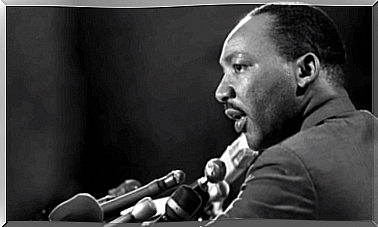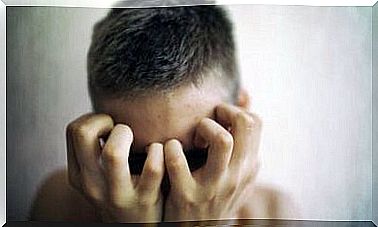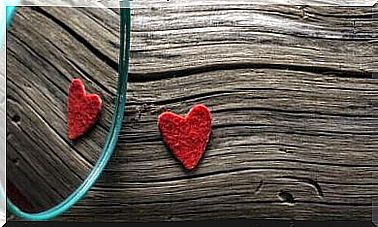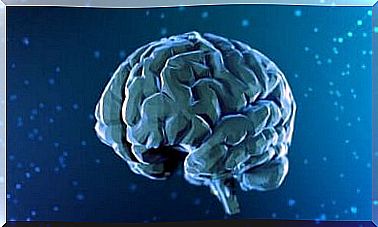5 Solutions To Overcome Emotional Dependence

We humans are “social animals” and we need others, that’s for sure. But how much do we need them? Where is the line that separates a healthy relationship from an emotional addiction?
Contact with others is necessary for our development. Children need someone to care for them, someone who will not only feed them, but also offer them human warmth and affection. To live a fulfilled life when we grow up, it is necessary for us to have a social circle: family, friends, a partner…
But it’s one thing to talk about the need for social contact in general and quite another to talk about concrete relationships we commit ourselves to and how we experience them.
Emotional Dependence
Often, and especially in partner relationships, emotional dependence or addiction comes into play and turns the relationship, far from being a form of support, into an obstacle to the development and even mental health of the two partners.
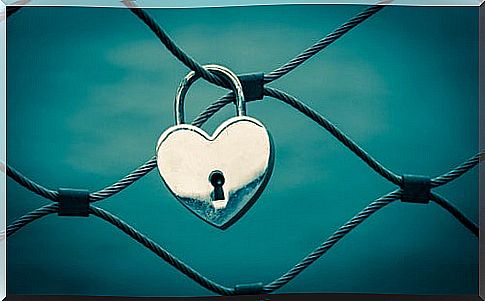
If you are not happy in your relationship, it may be because you are living in a position of addiction. Therefore, we are going to describe some of the signs that may indicate some level of emotional addiction to your partner.
- First of all, if your relationship is bringing you suffering (such as sadness or fear) and you are still unable to change paths or leave it, it is very likely that you are experiencing some degree of emotional dependence. Relationships are complicated and require effort, but not suffering.
- One of the most concrete signs of addiction is not doing any activity outside of the relationship. Be it a hobby, study, career or friends… if you do everything with your partner, your relationship is likely to be addictive or dependent.
- Another hallmark of an addiction to your partner is the inability to be alone. Maybe you’ve become so used to sharing everything with your partner that you don’t know what to do when you’re alone, or maybe it’s also possible that worry overwhelms you… worry that something could happen to him or her or about what he or she could do.
- You have thoughts whether you believe that you cannot live without that person or that your life would have no meaning without him or her, that he or she is your whole world. These ideas are characteristic of a dependent relationship.
- Jealousy is often a good indicator of an addictive relationship, as it is linked to insecurity and a lack of communication.
Emotional dependence can have many causes. In some cases it may be due to the fact that we have not learned to tolerate the suffering that comes with life and therefore we are unable to leave partners who hurt us for fear of change or to be alone. In extreme cases, we may not be able to leave, even when we are under assault or abuse.
In other cases, due to self-esteem issues, we become dependent on our partners to make us feel good about ourselves, to admire us, or to give us assurances that we don’t have ourselves.
Whatever the reason, the addiction to a partner is always ultimately the problem of the individual who is suffering, who has to work on himself so that he can start healthy relationships. On the other hand, there are the expectations, asking for company too often, the jealousy… these things will go on and on in relationships.
How can we overcome emotional dependence?

- The first thing to do is be honest with ourselves and try to find the origin of the addiction. Maybe you’re afraid of being alone because you never had to be, maybe your self-esteem depends on your partner’s praise. Think about this because it will be a fundamental pillar for you to solve the problem.
- Reconcile with your loneliness. Find spaces where you can be yourself without your partner and most of all, enjoy it. You can start with yoga, find a walking group, sign up for a photography course… there is bound to be something that piques your interest or something you’ve always wanted to do. The most important thing is to be able to rely on the fact that there is something of yourself that does not depend on your partner.
- Be aware of your negative thoughts, especially jealousy, fear, etc. and try to be stronger than those thoughts. When you realize you are falling into a spiral of negative thoughts, go for a walk in the streets, call someone to talk about it…
- Talk to your partner. Communication is a fundamental pillar in a relationship. It is a matter of sharing your experience with him or her so that he or she is aware of what you are going through and the changes you hope to achieve. In this way you will be able to support yourself and understand yourself better.
- And of course keep in mind the possibility of seeking professional help if you are unable to make any changes yourself.
Life is a way of learning and if we let go of the burden, fear and anxiety, we can enjoy everything in a more satisfying way, especially our relationships.
Do you think you are or have been addicted to your partner? How did you deal with this problem or what do you think you can do to overcome it?


